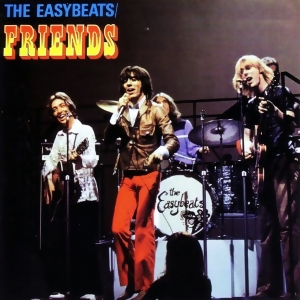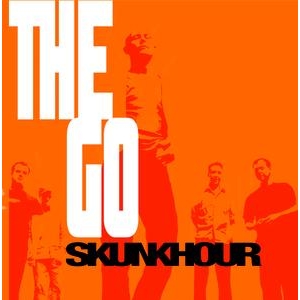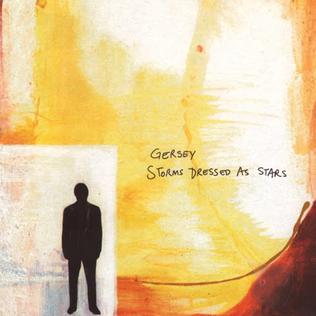
Renée Rebecca Geyer is an Australian singer who has long been regarded as one of the finest exponents of jazz, soul and R&B idioms. She had commercial success as a solo artist in Australia, with "It's a Man's Man's World", "Heading in the Right Direction" and "Stares and Whispers" in the 1970s and "Say I Love You" in the 1980s. Geyer has also been an internationally respected and sought-after backing vocalist, whose session credits include work with Sting, Chaka Khan, Toni Childs and Joe Cocker.

The Fauves are an Australian rock band formed in 1988. The band are known for their witty lyrics, melodic pop-rock and often satirical or evocative exploration of Australian themes.

Like Cats and Dogs is a compilation album by English alternative rock band Catherine Wheel, released 9 September 1996 by Fontana Records in the UK and Mercury Records in the US. The album includes an alternate version of "Heal" from Happy Days, several outtakes and B-sides spanning the band's career, and cover versions of songs originally by Pink Floyd and Rush. The Rush song "Spirit of Radio" had been recorded earlier in the year for a CD entitled "Spirit of the edge Vol. 2" which was put out by Toronto radio station CFNY for which the song had originally been written.

Skeleton Jar is the second album by Youth Group. It was first released in Australia on 22 March 2004, and on 24 May 2005 on Epitaph Records in the United States with a re-arranged track listing and one new song. The US version was released in Australia as a "repackaged" album in July 2004. In 2011 the album was voted #98 on Australian radio station Triple J's Hottest 100 Australian Albums of All Time.

Mish Mash! is the fifth studio album from Australian rock band, Regurgitator. Mish Mash! was released on 15 November 2004 and peaked at number 52 on the ARIA Charts.

Friends is the sixth and final studio album by Australian rock band the Easybeats. It was released in early 1970 as part of the group's new recording contract with Polydor Records. It would be the only album Polydor released of the band as they broke up before its release.

When Good Times Go Good is the ninth album by Mornington Peninsula, Melbourne indie band The Fauves. It was recorded in the Sydney harbourside suburb of Neutral Bay with regular Fauves producer Wayne Connolly and Midnight Oil's Jim Moginie; the latter also contributed piano, electronic keyboard and extra guitar to several songs. The album title was conceived in a swimming pool in Thailand.

Nervous Flashlights is the eighth studio album by Australian indie rockers, The Fauves, which was issued in June 2006 on Shock Records and was co-produced by the group with Wayne Connolly. Eleven of its twelve tracks were written by the band's vocalist and guitarist, Andrew Cox.

Future Spa is the third album by Australian rock band The Fauves. It was released in August 1996.

Destroyer is a Canadian indie rock band from Vancouver, formed in 1995. The band is fronted by founding member Dan Bejar, with a collective of regular band members and collaborators joining him in the studio and during live performances. Alongside Bejar, Destroyer currently includes longtime producers John Collins (bass) and David Carswell (guitar), Nicolas Bragg, Ted Bois (keyboards), JP Carter (trumpet) and Joshua Wells (drums).
The Fauves is the seventh studio album by Mornington Peninsula, Melbourne indie band The Fauves.

Lazy Highways is the fourth studio album by Mornington Peninsula, Melbourne indie band The Fauves. The album has been described as the band's Australiana-album.
Footage Missing is the sixth studio album by Mornington Peninsula, Melbourne, Australia indie band The Fauves.

Japanese Engines is the tenth studio album by Mornington Peninsula, Melbourne, Australia indie band The Fauves.

Rushall Station is the fourth album by Australian indie rock/electronic band Underground Lovers, released in 1996. It was named after Rushall railway station, located near the home of band member Vincent Giarrusso in Clifton Hill in Melbourne.

The Go is the fourth and final studio album by Australian band Skunkhour. It was released in 2001. "Home" was released as a single in 1999 and two further singles were taken from the album—"Gold Radiation" and "Kick in the Door".

Storms Dressed as Stars is the second album by Melbourne indie band Gersey. It was released in 2002. Two singles were taken from the album — "Look to the Sun" and "For Whom Do You Sail?", which included four tracks from a radio session recorded for California radio station KCRW's "Morning Becomes Electric" show.

Further/Deeper is the 24th album by the Australian alternative rock band The Church, released in October 2014.

"Danced in the Fire" is a song by New Zealand singer songwriter Sharon O'Neill. The song was released in February 1988 as the second single from her fifth studio album, Danced in the Fire (1987).
Driveway Heart Attack is the twelfth studio album by Australian indie rock band, The Fauves, which was released on 31 May 2019 as a double album via Shock Records. To promote the album they supported Regurgitator on the latter's 25th anniversary tour in October–November 2019.

















